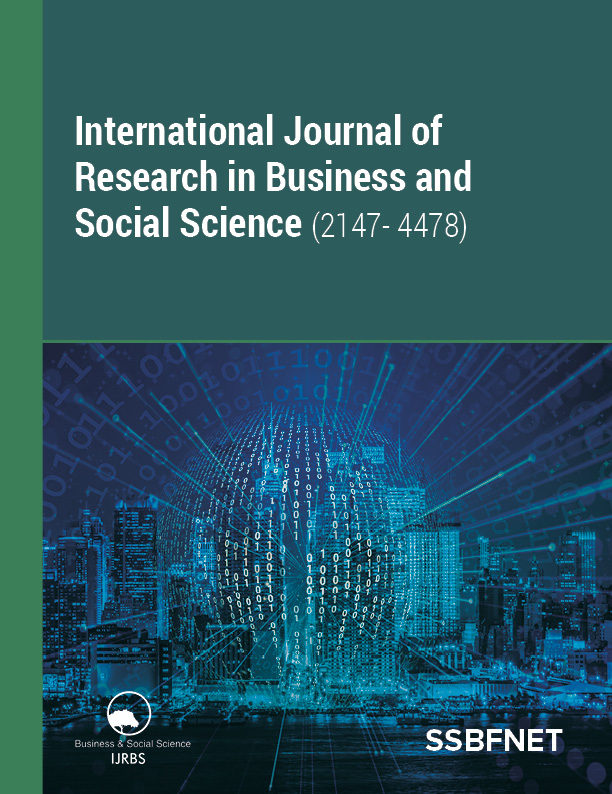
International Journal of Research in Business and Social Science
Yazarlar: Umar Abbas Ibrahim, Abdulqadir Isiaka
Konular:-
Anahtar Kelimeler:Accounts receivable period,Accounts payable period,Cash conversion cycle,Gross Domestic Product,Earnings per share
Özet: This study examines the effect of working capital management on the financial performance of Non-financial companies quoted on the Nigerian Stock Exchange over the period 2014 – 2018 while using a panel research design. This work is unique because it considers a sample of 71 companies drawn from all the 10 non-financial sectors of the NSE. Unlike most extant studies, financial performance was captured by earnings per share as a proxy, while the right-hand side variable being working capital management was denominated by Accounts receivable period, Inventory turnover period, and Accounts payable period. This study also considered the effect of some control variables namely annual capital expenditure, age of firm, GDP, firm size, growth of the company, and firm leverage on EPS. Data were retrieved from the Nigerian Stock Exchange 2019 Factbook. The model estimation technique adopted was the Pooled Ordinary Least Squares, fixed effect, and random-effect methods. Results from this study are consistent with the theoretical position that all aspects of working capital management have a significant effect on financial performance. While ITP and ACP were negatively related to EPS, APP was found to have a positive relationship with EPS. The research results also reveal that although all the control variables were found to be significant, only the age of the firm was deemed to be positively related to EPS. Based on the findings, the research recommends that firms should focus their managerial attention on lowering their ITP and ACP while increasing their APP, as results indicate that management of these elements of working capital can translate into liquidity and higher profitability.